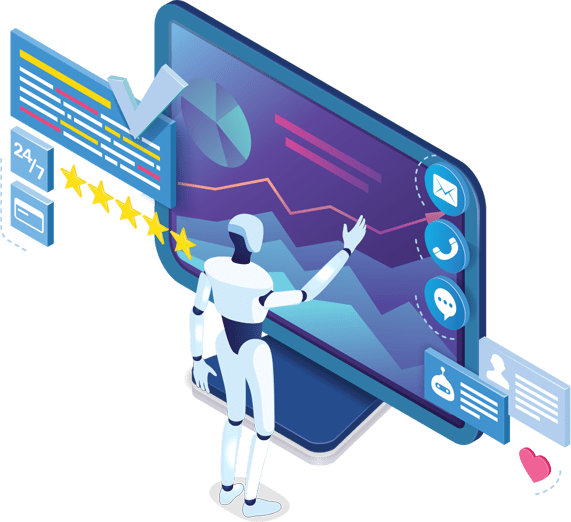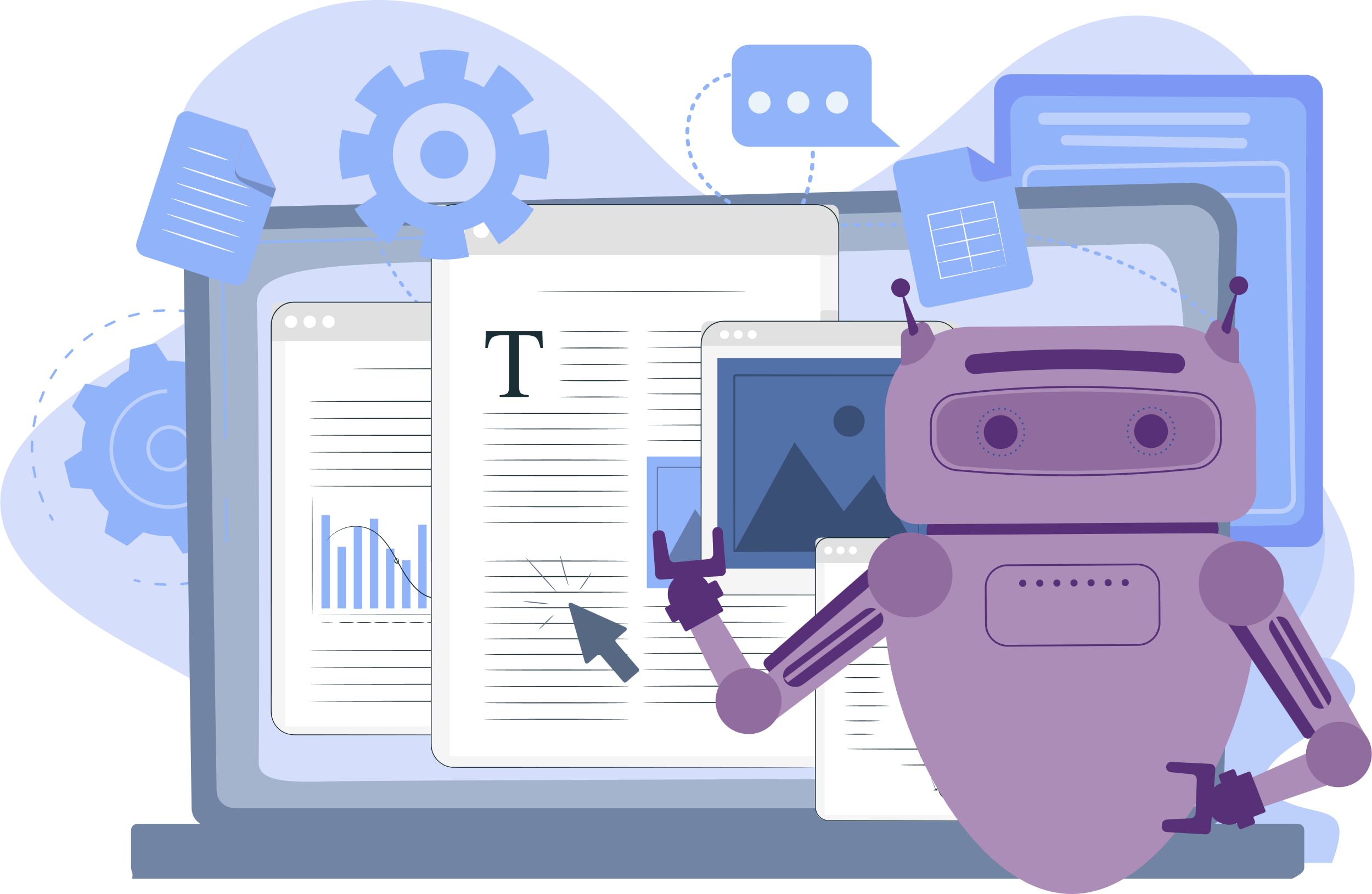Digital Privacy in 2024 - Hidden Risks & Emerging Trends
Remember those dystopian novels where your every move was tracked and monitored? Well, 2024 isn't quite there yet, but with all the data swirling around online, it can feel pretty close. But fear not, fellow netizens! This isn't some hopeless privacy apocalypse. We're here to equip you with the knowledge and tools to navigate the digital world on your own terms.
Think of it as a thrilling digital privacy gameshow, and you're the ultimate contestant – ready to win back control of your online identity. So, buckle up, and get ready to reclaim your digital freedom in 2024.
This blog highlights the complex landscape of digital privacy in 2024. We'll explore the shifting tides of data collection, the potential benefits and risks, and most importantly, equip you with actionable steps to navigate this evolving environment and reclaim control of your online identity.
Victories, Challenges & Emerging Threats
2024 marks a turning point in the ongoing battle for digital privacy. The long-awaited demise of third-party cookies, those infamous trackers used for targeted advertising, is finally upon us. Major browsers like Chrome are phasing them out, giving users more control over who tracks their online activity. Google's phasing out of third-party cookies stems from a confluence of factors, including:
-
Privacy Concerns: There's growing public awareness and concern about how user data is collected and used online. Third-party cookies are seen as particularly intrusive as they track users across different websites. Google's move positions them as champions of user privacy.
-
Competition Issues: Regulators have been scrutinizing Google's dominance in online advertising. By phasing out third-party cookies, which some argue unfairly benefit Google's ad business, the company can address these concerns and create a more level playing field.
-
Privacy Sandbox Initiative: Google has its own "Privacy Sandbox" initiative, which aims to develop new, more privacy-focused methods for targeted advertising. By phasing out third-party cookies, Google can pave the way for these alternative solutions within their ecosystem.
Additionally, regulations like the EU's Digital Markets Act (DMA) aim to empower users with greater transparency and control over their data. However, these milestones represent just the beginning of the journey. As technology advances, so do the threats to our privacy. The rise of artificial intelligence (AI) brings immense potential, but also concerns about its use for intrusive data analysis and profiling.
Facial recognition technology is another area of concern, with its potential for mass surveillance and privacy violations. The ever-expanding internet of things (IoT) adds another layer of complexity, as everyday devices like smart appliances and wearables gather and transmit an astonishing amount of data, raising questions about security and user control.
The Hidden Risks of Our Online Footprint
The digital footprint we leave behind – the trail of data generated from our online activity – is a treasure for companies. This data, encompassing everything from our browsing history and search queries to our social media activity, location data, and purchase records, is used for a variety of purposes:
-
Targeted Advertising: Companies leverage our data to personalize advertisements, showing us products and services we're more likely to purchase. While this can be convenient, it also raises concerns about manipulation and the creation of "filter bubbles" where we are only exposed to information that reinforces our existing beliefs.
-
Profiling: Data is used to create detailed profiles on individual users, which are then used for targeted marketing, credit scoring, and even influencing our online experiences. Precise profiles can create vulnerabilities, like the potential for price discrimination or insurance redlining.
-
Behavior Manipulation: Social media algorithms are designed to keep us engaged, sometimes at the expense of our privacy. These algorithms can curate feeds and prioritize content that is designed to trigger specific emotional responses, potentially manipulating our opinions and influencing our behavior.
While data collection offers some benefits, like personalized experiences and improved services, the potential for misuse is significant. Privacy breaches can expose our personal information, leading to identity theft and financial losses.
Data leaks can have a chilling effect on free speech and dissent, as individuals may be reluctant to express themselves freely for fear of being targeted. Targeted manipulation through social media algorithms can distort our understanding of the world, create social divisions, and influence elections through the spread of misinformation.
Do You Know The Hidden Costs of "Free" Services?
It's important to understand the cost of "free" online services. Many popular platforms rely on a freemium model, where basic services are offered at no cost, but the real revenue comes from data collection and monetization. When we use these services, we often implicitly consent to having our data collected, analyzed, and sold to third-party companies.
Here are some of the hidden costs of relying on free services:
-
Loss of Control: Once you relinquish control of your data, it becomes difficult, if not impossible, to track where it goes and how it is used.
-
Targeted Advertising: Companies create detailed profiles based on your data, which are then used to bombard you with personalized ads, potentially leading to feelings of being "tracked" online.
-
Profiling and Manipulation: Our data can be used to create profiles that can influence our behavior, manipulate our online experiences, and even affect real-world outcomes like credit scores or insurance premiums.
How Digital Footprints Stifle Free Speech in 2024?
In 2024, the ever-expanding digital footprint we leave behind chills free speech. Data leaks and the potential for targeted retaliation can make people hesitant to express dissenting opinions online. Furthermore, social media algorithms curate content to reinforce existing beliefs, creating echo chambers that limit exposure to diverse viewpoints and potentially stifle open debate.
How To Take Back Control of Your Digital Footprint?
So here comes the good news. Taking charge of your digital privacy is not out of reach. Here are some actionable steps you can take to reclaim control of your online identity in 2024:
-
Privacy Settings Audit: Conduct a thorough audit of your privacy settings on all social media platforms, apps, and online services.
-
Password Power-up: Did you know the average person has over 80 online accounts? That's a lot of passwords to remember! In 2024, using a password manager is no longer optional, it's practically a superpower. Imagine being able to unlock your digital life with just one secure key – like a digital vault dweller with exceptional memory!
-
Location Sharing: Location sharing is convenient, sure. But do you really need your fitness tracker to know your grocery shopping habits? In 2024, be mindful of what location data you share. Remember, even the most low-key online persona can leave a surprisingly detailed footprint.
-
Privacy Settings Safari: Navigating privacy settings can feel like exploring a digital jungle. But don't worry, you're not alone! In 2024, many platforms offer helpful guides to walk you through the privacy maze. Think of it as a treasure hunt, with the reward being control over your own data!
-
The Data Detox Challenge: Feeling overwhelmed by the constant data deluge? Why not try a digital detox challenge in 2024! Take a break from social media, limit screen time, and rediscover the simple joys of the non-digital world. You might be surprised at how refreshing it can be to unplug and recharge (without giving away all your recharge habits online, of course).
You’re in Control
The digital landscape is ever-evolving, and the fight for privacy is an ongoing battle. However, 2024 marks a turning point. With the decline of third-party cookies and the rise of user-centric regulations, the tides are slowly shifting towards a more balanced digital ecosystem.
While challenges remain, the power ultimately lies in your hands. By taking proactive steps like conducting privacy audits, using strong passwords, and being mindful of what data you share, you can become an empowered participant in the digital world. Remember, knowledge is power. Stay informed about the latest developments in digital privacy, and don't be afraid to leverage the growing number of resources available to help you navigate the online landscape.
SHARE ON
NEWSLETTER
Stay updated with our latest news and exclusive offers by subscribing to our newsletter!
recent post
Related Posts
Maximize Your
Business Potential with CyberGen's
Comprehensive AI Solutions




















.png)
.png)


